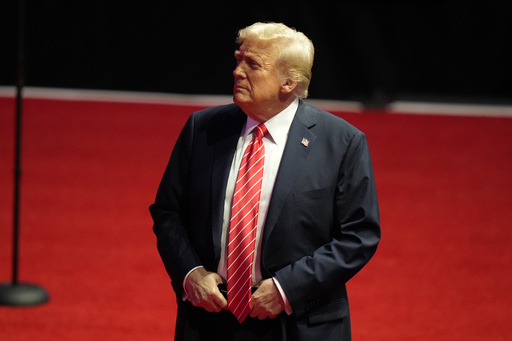
ATLANTA — Notre Dame’s head football coach Marcus Freeman expressed a greater ease discussing the potential national championship for his players than delving into the historical implications that would accompany such a win.
However, it’s difficult to overlook the significance of Freeman’s potential achievement, as he endeavors to become the first African American coach to claim a college football title at the highest level in the U.S. Coincidentally, this momentous occasion falls on January 20, a day that holds dual meanings: it is national-title day and also Martin Luther King Jr. Day, marking an important celebration of inclusion and equality while Donald Trump is inaugurated for his second presidential term.
Joseph Cooper, director of the Institute for Innovative Leadership in Sport at UMass, voiced that the timing of Freeman’s endeavor amidst Martin Luther King Jr. Day serves as a compelling symbol that deserves a measure of cautious optimism. He also pointed out that with the new administration’s expressed intent to overturn diversity, equity, and inclusion (DEI) policies, it highlights both the challenges and the lengthy journey that remains beyond merely breaking barriers.
The context of Freeman’s potential landmark achievement is particularly noteworthy, arriving over forty years after a Black basketball coach first captured a national title and against the backdrop of a longstanding subpar record for minority hiring in college athletics — a clear indicator of the considerable progress still required in the field.
Rod Broadway, a former coach at historically Black universities like Grambling State and North Carolina A&T, drew a parallel by stating that today’s Black coach mirrors the struggles experienced by Black quarterbacks in the 1970s when they were seldom seen in prominent roles.
The environment surrounding collegiate sports has been influenced by a notable backlash against affirmative action and the DEI initiatives that gained momentum following the Black Lives Matter movement spurred by George Floyd’s death in 2020.
Since then, the Supreme Court has invalidated affirmative action in college admissions, Florida has eliminated funding for public universities to support DEI initiatives, and numerous states have enacted legislation governing transgender participation in sports.
As the football postseason unfolds, Black coaches occupied just 11.9% of head coaching roles in college football’s upper echelon, considerably lower than the nearly 18% representation in the NFL, where the Rooney Rule mandates interviews for minority candidates in coaching positions. This disparity underscores the lack of similar regulations in college sports, apart from a singular initiative within the West Coast Conference, which does not sponsor football.
Freeman, whose heritage is a blend of African American and South Korean, reflected thoughtfully when acknowledging the historic context surrounding his semifinals victory against fellow Black coach James Franklin of Penn State a few weeks prior. He articulated his belief in providing equitable opportunities for all coaches, regardless of racial background.
Beyond his current playoff run, Freeman’s commentary on race and opportunity became notably impactful in 2021 when he was named the first Black head coach in Notre Dame’s extensive history. “I want to serve as proof of what can be accomplished when given the OPPORTUNITY,” he remarked, emphasizing the necessity for equal chances.
Nevertheless, even decades after the first Black coaches won national titles in basketball, opportunities for minority coaches in football remain exceedingly rare. A recent evaluation by a diversity watchdog granted collegiate programs a “C” grade on their minority hiring practices.
Richard Lapchick, founder of The Institute for Diversity and Ethics in Sport, posited that the emergence of a Black coach in a championship setting was an inevitability, albeit one that took longer than many anticipated.
Broadway, now retired in South Carolina, relayed a story reflective of the mixed emotions elicited by Freeman’s moment. He recalled being asked to interview for a major university position, only to feel that media coverage was there not to acknowledge his potential as a candidate but rather to document the institution’s diversity gestures.
He expressed that the realities of Black coaches securing significant roles in college football remain disappointing and discouraging. As uncertainty looms regarding whether Freeman’s ascent foreshadows real progress, Broadway pondered the implications of recent hires of Black former NFL players like Deion Sanders and Michael Vick, questioning whether such moves are paving new pathways or merely filling existing vacancies.
“Many talented African American coaches are out there eagerly awaiting their chance in the game,” Broadway remarked, emphasizing his belief in many deserving coaches whose abilities remain unrecognized.
The discourse around Freeman’s journey, college football, and the evolving landscape of coaching opportunities for minority candidates continues to highlight the crucial issues of representation and access in the sport.

